“The Whole Point of Chasing Points Is to Extract the Most Value From Activities You’d Be Doing Anyway”
Signing up for credit cards through partner links earns us a commission. Terms apply to the offers listed on this page. Here’s our full advertising policy: How we make money.
Update: One or more card offers in this post are no longer available. Check our Hot Deals for the latest offers.
Welcome to the next installment of our interview series where folks share their thoughts about Big Travel with Small Money!
Miles & Points Interview: The Road Warrior
Coleman writes The Road Warrior blog to help people who travel for work live their best most productive life, no matter where they are. He’s a couple months away from the launch of his first book, The Road Warrior: A Practical Guide to Maintaining Your Health, Productivity, and Sanity While Traveling for Work.
In the meantime, you can find other tricks and insights for free on The Road Warrior Blog, or by signing up for his weekly letters.
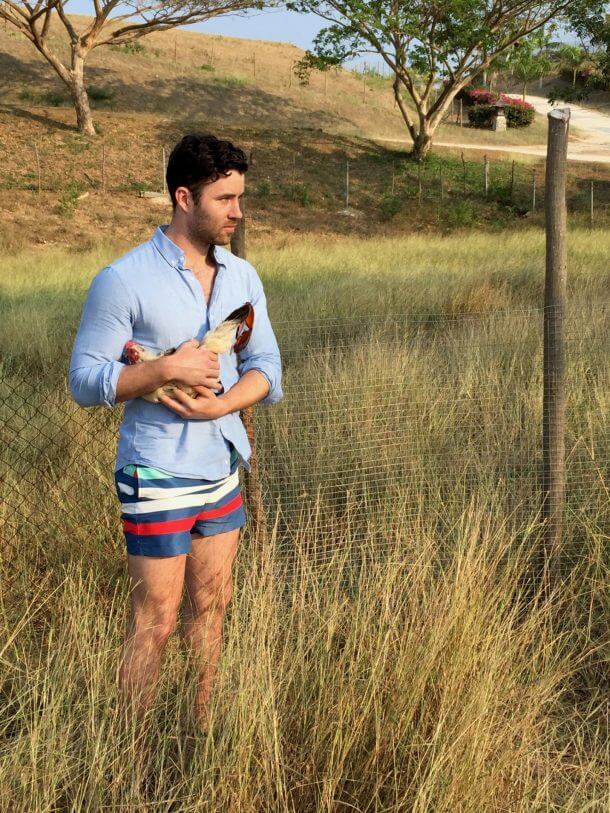
How and when did you start collecting miles and points?
I was ~23 years old when I started collecting miles & points.
My first full-time job after college was at a consultancy that required me to be on the road 3 to 5 days a week, every week. We had 2 options when it came to expenses: we could use the corporate card, or we could use a personal card, get reimbursed, and keep the points. At first, I used the corporate card — I didn’t know any better.
Then one day, at dinner in some far-flung city, my colleague (and now friend) Ted saw me trying to pay with the corporate card, and set me straight.
He said 2 things that stuck with me. The first was the attitude every business traveler with the option to get reimbursed should have: “You have to submit the receipts either way. You can either make that a miserable chore or a game you can win.”
The 2nd was a little more straightforward: “Here, look at this.”
He showed me his points balance at his preferred airline and hotel. And then images from his 2 most recent trips, to Thailand and Spain, both of which cost him almost nothing.
Eight months later, I took my first international vacation on points. I was hooked.
Why did you start your blog? What’s special about it?
Because I believe business travelers don’t have to feel constantly exhausted or sacrifice their well-being to be successful. They deserve better.
More practically, I still had a huge list of other topics I wanted to write about when I finished the first draft of The Road Warrior book. And then, as I started the editing process, we ended up with a lot of useful stuff that needed to be cut for length.
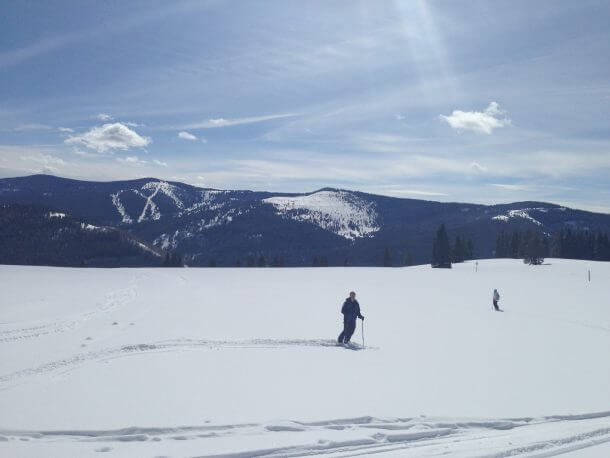
So, I started the Road Warrior blog as a place to put everything I felt—for one reason or another–wasn’t a good fit for the book, but could still help other road warriors achieve their full potential.
What’s the one single thing people can do to get more miles?
This is most applicable to business travelers, but everyone could stand to double down on your preferred airline or hotel. Use one airline (or airline group), and one hotel super-chain whenever possible, and get their cards.
It’s tempting to chase bonuses and limited deals across the many carriers, but:
- Holding points in many different places gets confusing and difficult to keep track of. Your time and energy have real-world value too, not just your points.
- Paying for a flight or hotel with the company’s branded rewards card can bag you as much as 4x to 5x the points you’d get using a “generic” points card like Chase Sapphire Preferred Card. (And that’s before the points and miles you get for actually staying or flying.)
- Regular patronage has a massive amount of benefit in its own right for a frequent traveler. It’s another way to get points multipliers — as many as 3X the points for the top tiers — plus access to bonus points offers like Marriott’s near-continuous MegaBonus promotion.
- With status match programs and enrollment bonuses, it’s easy (and often valuable) to switch to a new hotel or airline as the rewards landscape shifts. I’m only asking you to stick with a company for a year, not forever.
What’s your most memorable travel experience?
I’ve got a lot of “wonderful” travel memories — climbing in the Alps in Switzerland, accidentally hitching a ride from Madrid to Seville with Spanish college students, going completely off-the-grid in a little surf hostel in the north of the Philippines, and a fun overnight layover in Tokyo.
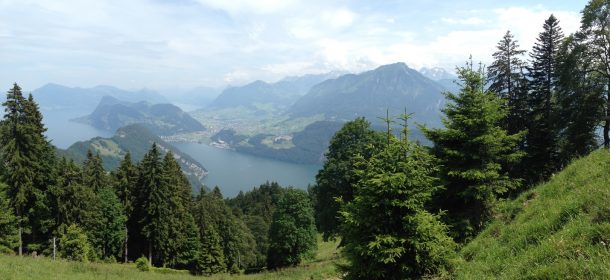
But you asked for memorable, and that was the time that I showed up in Singapore with no visa, no return ticket, no hotel details, no idea where I was supposed to be going, and no proof that I was there for work. About a week and a half after they had very publicly resumed executing people for drug trafficking, after a decade-long hiatus.
A little backstory — this was an extremely, extremely last-minute business trip to help an important international account out of a jam. I was asked on a Friday to be there on the following Monday. The first nice Friday of spring. I asked about paperwork, and was told that it would be in my email that afternoon, sometime Saturday at the latest.
Of course, our 2-person global mobility services team had (justifiably) skipped out early for the weekend — it was beautiful out, and what kind of lunatic is even willing to get on a 16-hour flight on a day’s notice?
I finally got a hold of someone on Saturday while en route to the airport, and was assured that the requisite information would be in my email before I landed. I spent that entire flight in increasing panic. Would the papers be there?
Now, I wasn’t carrying anything illegal in the slightest (I made sure that I hadn’t even brought gum). But I think the panic was still at least a little bit justified: This is a country that executes people for things that would be a written citation in some parts of the US.
They cane you for littering. The main prison is literally across the street from the airport. And I had never been there before, only heard the horror stories.
What were they going to do with a guy that — at least on paper — looked like the exact definition of someone to stop at the border?
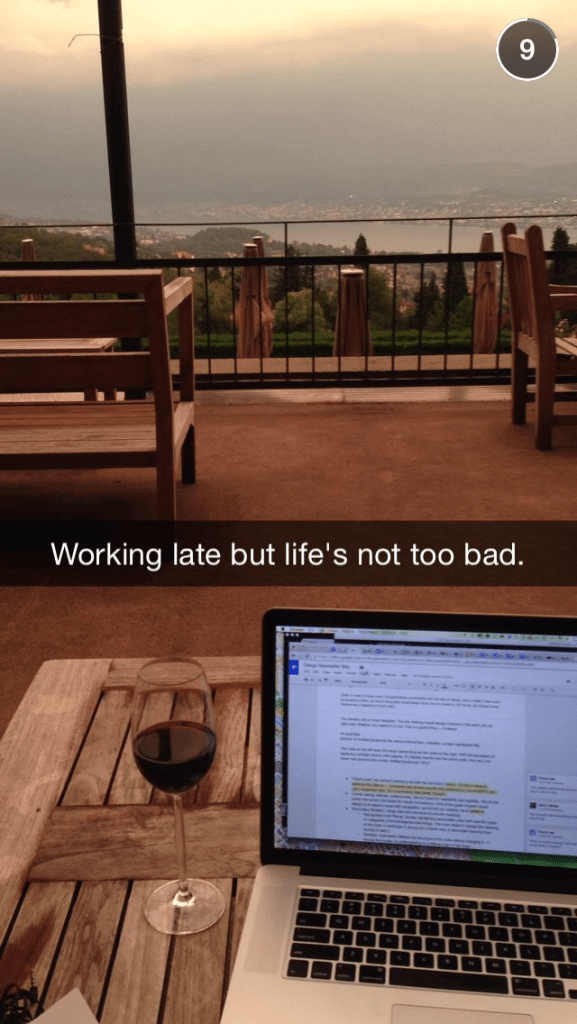
I checked during my layover in Taipei. No email. No papers. The plane between Taiwan and Singapore didn’t have Wi-Fi. Changi Airport actually has great Wi-Fi, but you can’t really pick it up before you get through immigration, and if you try to stall with an open a laptop, they very politely tell you to get the heck in the immigration line.
So I still had nothing, and I also had people behind me and a man in blue with his eye on me. By the time I got to the immigration desk, I had—no exaggeration—sweat through my shirt. The best-case scenario in my mind at this point was the next flight back to the US, or else a nice 12-hour visit to an immigration holding area. I didn’t think I was going to get caned, but who knows?
The immigration officer took my passport, looked me up and down once, and asked why I was there. I told him the truth. He asked where I was staying. I told him the truth: I didn’t know yet. He typed something into his computer. My heart nearly jumped out of my chest. He asked if I had a business card. I gave him a business card.
Then, he asked for 30 Singapore Dollars, payable by cash or credit — the standard price for a short-term visit pass.
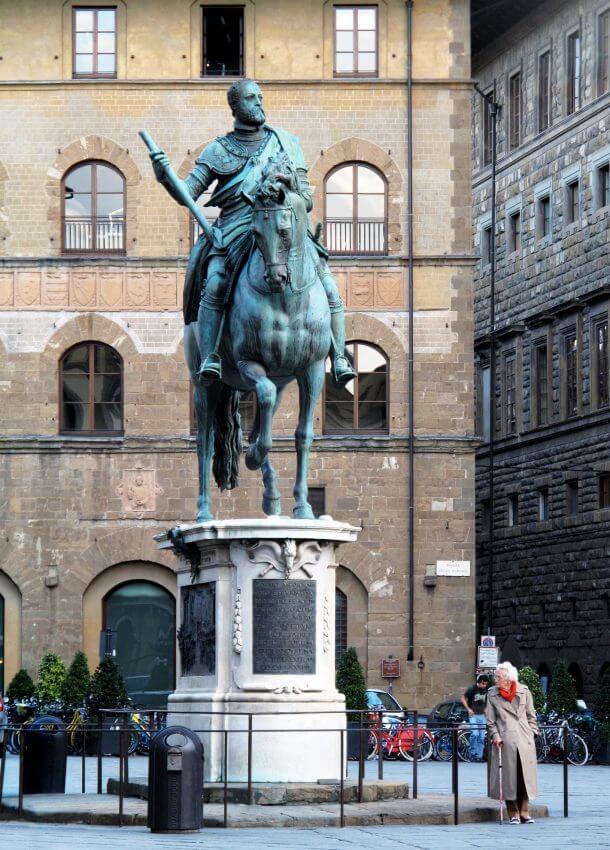
Singapore immigration is not on the lookout for poorly-prepared white dudes with US Passports. I was not special. I was barely even interesting to him. I had made a huge issue in my head out of nothing, based on poor information and worse stereotypes.
He sent me on my way to figure out where I was sleeping that night — which is also quite a story, but one I’ll have to save for a different time.
What do your family and friends think of your miles & points hobby?
I have a lot of business traveler and full-time-nomad friends, and they’re nearly all lunatics about it like I am. For that crew, it’s a great way to find common ground, even with people I otherwise have almost nothing in common with. Nothing like an obsession to bring people together.
For my home-bound friends, my brother, and my girlfriend, it’s a love-hate relationship, I think. They love the perks of traveling with me — the “come on, we can get coffee and wait in lounge,” the “I can get this hotel on points, don’t worry about it,” and so on. But if I try to tell them how I got the perks and points to treat them? They’ll listen politely for a while, but their eyes tend to glaze over a bit.
Is there any tool or trick which you’ve found especially useful in this hobby?
I mentioned this earlier, but it’s worth repeating: Points have a real-world value, but so does your time. Which is to say, my trick is a different approach to miles and points than many people, even from many of my fellow full-time travelers.
I don’t try to maximize for total miles. I don’t think you should either. In my mind, the whole point of chasing points is to extract the most value from activities you’d be doing anyway, not to create a new part-time job for yourself that is paid in a weird currency you can’t easily convert to dollars.

Include the time cost of managing and chasing these opportunities. And don’t just consider the miles & points you’ll earn, but also the time spent earning them.
Compare the dollar value of the points you’re getting per hour spent to the dollar value of a part time job at McDonald’s. Is it really worth the time you’re spending on it?
I don’t do any of the advanced tricks, I don’t chase limited-time offers. I’ll apply for credit cards, but even then I’m not regularly chasing the best ones. I probably leave 25% (or more) of the points I could possibly get each year on the table. But by not chasing that 25%, I spend 10x less time worrying about it. It’s a trade-off I’m willing to make.
What was the least expected way you’ve earned miles or points?
By spending on Google Adwords and Facebook Ads.
I actually quit my consulting job ~1 year ago, and have been working for myself. As a supplement to the book and the blog (which don’t make me a full-time salary yet), I’ve been helping some small businesses do paid search and Facebook marketing. As well as doing some the same thing for a few projects of my own.
That ad spend has to go on a credit card. So why not a points card with a huge sign-up bonus tied to a large minimum spending requirement?
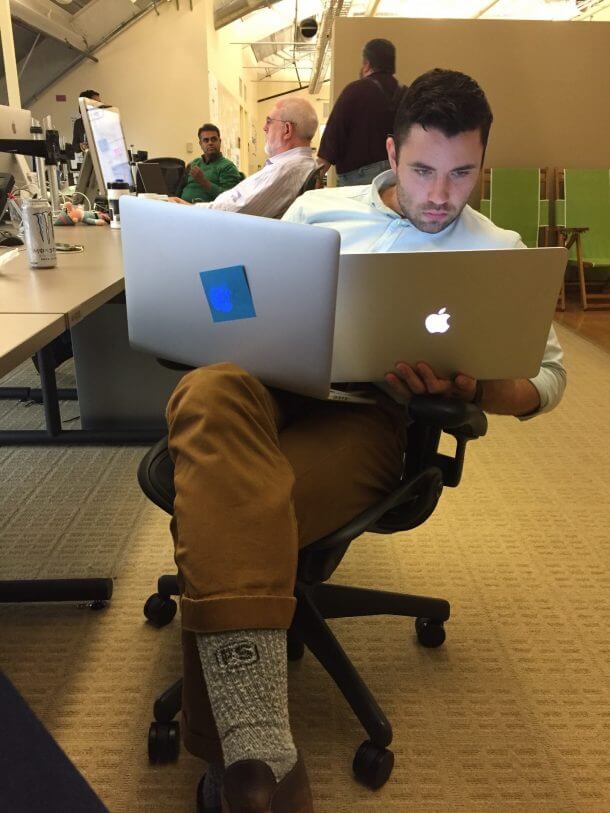
Once you have a well-tuned sales funnel, paying for clicks online just becomes a game of trading $1.17 for $1.50, over and over and over. The card gets paid off regularly, the debt never accrues, and the points keep trickling in.
I got this trick from my dad, who’s been in the online marketing business since the early 2000’s and has racked up ~3,000,000 miles this way.
What would your readers be surprised to know about you?
I think miles and points are one of the least important things for a business traveler to worry about.
Don’t get me wrong, I love it. And I think it’s a great hobby for any road warrior to pick up. I just don’t think it’s very important.
When you travel 45+ weeks a year, the sheer reality of your job will get you enough points to do nearly anything you want with them. If you get the right cards and use them well, this is doubly true.
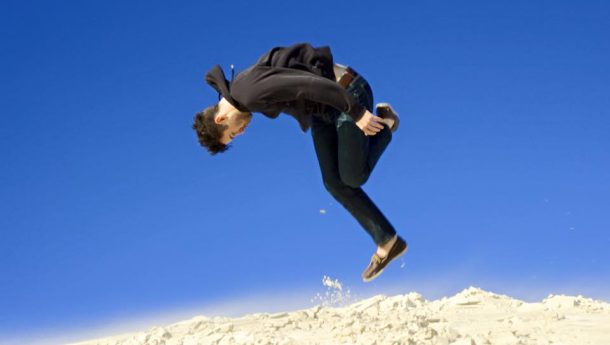
The extra time shouldn’t be spent trying to squeeze a few more drops of blood from that stone. It should be spent on figuring out how to travel well — to eat well, maximize your productivity, and stay active and pain-free. Ignoring these things in favor of the latest double-miles scheme will leave you without enough energy or mental capacity to enjoy redeeming points in the first place (or do your job effectively). All you’ll want to do is lay down in your bed, at home, and recover.
(And if you need help with that stuff, check out my book and blog.)
Any parting words?
I haven’t talked much about my take on redeeming points yet — but it’s just as critical to the hobby as collecting miles & points.
Think about it like a currency — a fiat currency issued by a single, unregulated bank (to that same point, don’t be surprised to see points programs that look a lot like cryptocurrencies, i.e. on the blockchain, in the next 5 years).
There are 2 ways to get the most out of any currency:
1) Spend less time, dollars, or effort to acquire it
2) Get more stuff with the currency you have
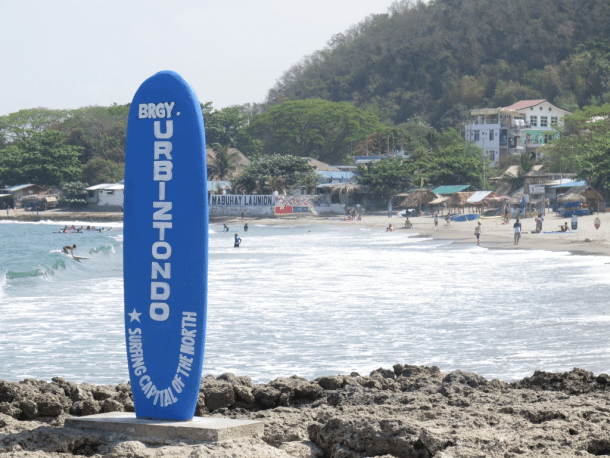
Look out for saver fares. You can sometimes find cheaper award seats with different airlines (for example, a Business Class award flight to Japan on United Airlines costs 140,000 United Airlines miles, but only 85,000 ANA miles). And don’t be scared to just buy a flight or hotel stay if it turns out to be cheaper in dollars than in points.
That said, don’t let trying to get the most out of your miles & points get in the way of going where you want to go and experiencing what you want to experience. If there’s a monstrously cheap fare to Stockholm, but you have no interest in Sweden, don’t go. If your partner wants to go to Hawaii for your honeymoon, but fares to Port Arthur, Texas are half the price, who cares? Go to Hawaii! Don’t just shop on price. Shop on value.
Coleman – Thanks for sharing your thoughts on having Big Travel with Small Money!
If you’d like to be considered for our interview series, please send me a note!
Editorial Note: We're the Million Mile Secrets team. And we're proud of our content, opinions and analysis, and of our reader's comments. These haven’t been reviewed, approved or endorsed by any of the airlines, hotels, or credit card issuers which we often write about. And that’s just how we like it! :)
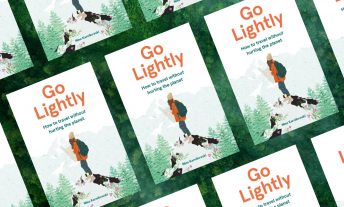
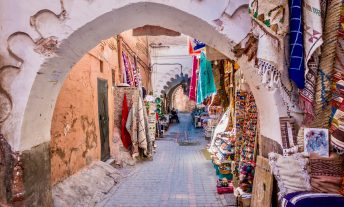




Join the Discussion!